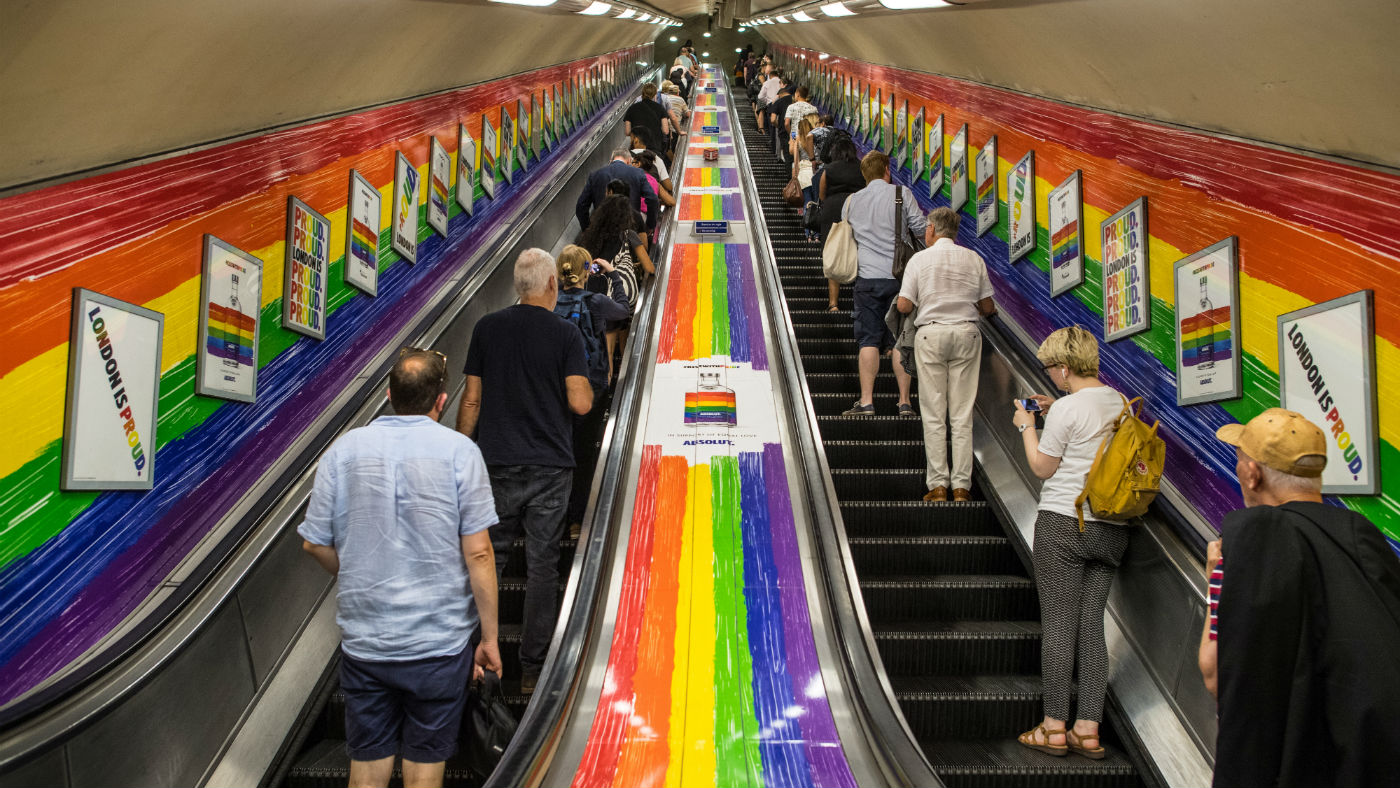Government’s new LGBT plan explained: conversion therapies to gender laws
Theresa May promises ‘real and lasting change’ in response to nationwide survey

A free daily email with the biggest news stories of the day – and the best features from TheWeek.com
You are now subscribed
Your newsletter sign-up was successful
Theresa May has launched a £4.5m government initiative aimed at advancing the rights of lesbian, gay, bisexual and transgender people in the UK.
The action plan follows the world’s biggest ever survey of LGBT people, which the prime minister said had “shone a light on the many areas” where action was needed.
“No one should ever have to hide who they are or who they love. The plan will set out concrete steps to deliver real and lasting change across society,” she said.
The Week
Escape your echo chamber. Get the facts behind the news, plus analysis from multiple perspectives.

Sign up for The Week's Free Newsletters
From our morning news briefing to a weekly Good News Newsletter, get the best of The Week delivered directly to your inbox.
From our morning news briefing to a weekly Good News Newsletter, get the best of The Week delivered directly to your inbox.
What is the Government proposing to do?
The action plan “sets out 75 steps to help improve the lives of LGBT people”, reports Sky News.
These steps include measures to ban controversial conversion therapies; creating a new national health advisor role to improve access to healthcare services for LGBT people; more support for teachers and pupils at schools and in other education bodies; greater dialogue with police to improve their responses to hate crime incidents; and improvements to gender identity services for transgender adults.
What did the survey find?
A free daily email with the biggest news stories of the day – and the best features from TheWeek.com
The online poll, which ran from July to October last year, “sought views from LGBT and intersex people about their personal experiences and interactions with public services”, reports The Guardian.
More than 108,000 people responded, making it the biggest study of its kind yet.
Of those with a minority sexual orientation, 68% said they had avoided holding hands in public with a same-sex partner, while 70% said they had sometimes kept their sexual orientation hidden.
One in 20 had been offered conversion therapy, while 2% of all respondents had undergone the treatment, which aims to reduce or stop same-sex attraction.
A quarter of those who took part in the survey said they were not open about their sexuality with family members they lived with, according to the BBC.
Of the trans men surveyed, 56% said they had avoided expressing their gender identity for fear of a negative reaction from others. That figure rose to 59% among trans women, and 76% among non-binary respondents.
Will the ban on conversion therapies work?
The techniques, sometimes called “cure” therapies, are based on the idea that being lesbian, gay, bisexual or transgender is a mental complaint that can be reversed. They “are often modelled on mainstream methods of psychotherapy, and sometimes prayer, and are known to be harmful”, says The Guardian.
Although a ban may reduce the chances of it being offered and promoted, “without more substantial support for potential victims, there is a risk that the industry will simply go underground, where it will not be open to challenge at all”, says the New Statesman’s Precious Adesina.
When a boy who had suffered physical and emotional abuse as part of the supposed therapy “was asked why he had not reported his situation to the police, he explained that the police knew but he refused to press charges on his family, as he would lose everything”, adds Adesina.
Such cases demonstrate that the Government needs to come up with “practical ways to ensure a ban can actually be enforced”, she says.
How has the plan been greeted?
The chief executive of campaign group Stonewall, Ruth Hunt, said she was “really pleased that the Government is listening to the thousands upon thousands of LGBT people who responded to this survey”.
Gay rights campaigner Peter Tatchell welcomed the bid to ban conversion therapy, but said that the action plan as a whole did not go far enough.
“The biggest fail is the lack of any pledge to end the detention and deportation of LGBT+ refugees fleeing persecution in violently homophobic countries like Uganda, Iran, Russia, Egypt and Jamaica,” he said.
“Another big omission is the absence of any commitment to compensate gay and bisexual men who were convicted under past anti-gay laws.”